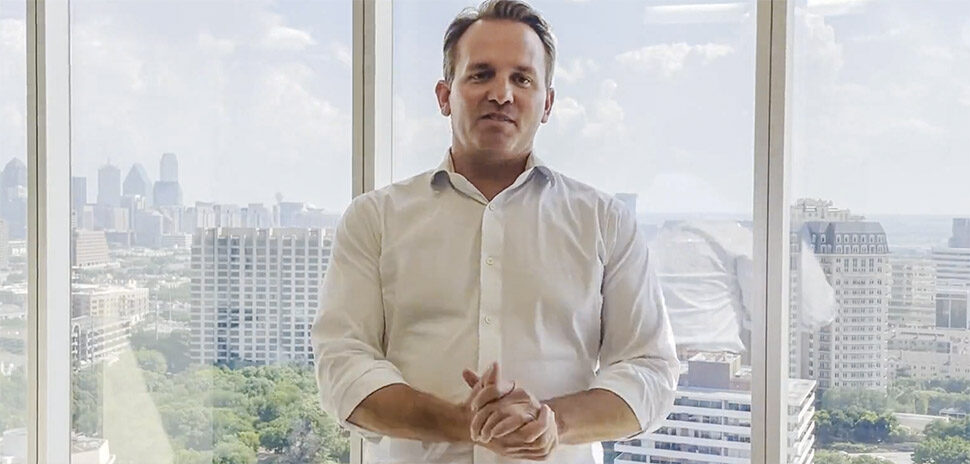The world’s oldest profession is going through a technological revolution that will make transactions easier, more secure, and anonymous.
The middle man will be cut out.
Chris Ballinger, chief financial officer and head of mobility services for the Toyota Research Institute, was of course talking about accounting and the rapid change brought on by blockchain.
The reference brought a chuckle from the crowd Thursday during the “Uses of Blockchain: Unlocking Value through Business Innovation” conference at the Naveen Jindal School of Management at the University of Texas at Dallas.
Ballinger wanted to get people’s attention because blockchain has the potential to change how corporations like Toyota do business on many levels.
BLOCKCHAIN AS A DISRUPTER
Toyota is exploring how blockchain could cut out the middleman for car loans, title transfers, and verification of ownership, potentially saving the carmaker millions of dollars.
Beyond that, blockchain could revolutionize peer-to-peer ridesharing and carpooling, electric vehicle charging, and hourly insurance.
“It is happening so ignore it at your own peril,” Ballinger said. “If you don’t get involved you will be left behind and it will to be too late. It’s moving quickly and it’s a disruptive technology to solve fundamental problems.”
“It’s moving quickly and it’s a disruptive technology to solve fundamental problems.”
Chris Ballinger
To really understand the impact blockchain will have, Ballinger showed a history of blockchain going back to the earliest civilizations. He showed the rapid innovations that occurred in the fifth century B.C. and 15th century as single and double ledgers improved accounting practices.
The blockchain will be just as transformative.
It’s a triple ledger that uses cryptography to secure information in a block with other data that’s chained together with similar data stored voluntarily on people’s computers.
Jobs that could be disrupted include anyone who is the middleman in financial, licensing, and title transactions, such as bankers, auditors, and escrow officers. Toyota alone loses 5 percent of its profit on car loans from fees paid for these transactions. Ballinger said Toyota would like to move to the blockchain where feasible.
BLOCKCHAIN WILL GIVE WAY TO NEW INDUSTRIES
The rise of blockchain will give birth to whole new industries that haven’t been thought of yet.
Self-driving cars need roadway sensors and algorithms that are secure, immutable, and can’t be hacked.
The music industry needs a way for musicians to hold on to licensing when their guitar riff or drum beat is sampled by other artists on the internet
The batteries on electric cars could be used as portable solar storage devices that could charge during the day and then provide backup power to the grid at night. The blockchain would handle the microtransactions between the vehicle owner and the grid.
The car industry of the future could be geared more toward ridesharing or automated vehicles rather than building cars for the individual. Blockchain could create hourly insurance that travels with a person as they get in rideshare vehicles or self-driving cars.
It would make all of these interactions easy and secure, Ballinger said.
Dallas Innovates, every day
One quick signup, and you’ll be on the list.




























